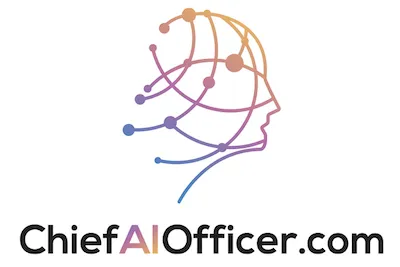Mass General Brigham used artificial intelligence to give doctors something rare in modern healthcare: more time to focus on their patients and reduce burnout. They deployed generative AI-powered ambient documentation technology that helps draft clinical notes, significantly alleviating the administrative burden that drives physicians away from medicine.
The results speak for themselves: 60% of providers reported being more likely to extend their clinical careers, 20% experienced reduced burnout symptoms, and 80% said they spent more time engaging directly with patients. While other hospital systems lose physicians to administrative exhaustion, Mass General Brigham is using AI to make healthcare careers sustainable again.
This isn’t just a healthcare technology story. This is a blueprint for AI implementation that solves fundamental organizational problems rather than creating impressive technology demonstrations that don’t address real operational challenges.
The Clinical Trial Approach That Ensures Success
Mass General Brigham initially tested their AI documentation technology with 20 physicians in a clinical trial approach to ensure safety and stability before expanding deployment. After proving effectiveness, the technology was rapidly adopted by around 800 providers across the system.
The clinical trial methodology demonstrates how successful AI implementation requires systematic validation rather than enterprise-wide deployment that risks operational disruption without proven value creation.
Healthcare organizations that deploy AI without rigorous testing and validation will achieve lower adoption rates and higher resistance compared to systematic approaches that demonstrate clear value before scaling implementation.
The Administrative Burden Solution
Generative AI-powered ambient documentation technology helps draft clinical notes, addressing the administrative burden that consumes physician time and contributes significantly to healthcare professional burnout and career dissatisfaction.
The documentation solution demonstrates how AI creates value by eliminating time-consuming administrative tasks that don’t directly contribute to patient care but consume substantial portions of healthcare professionals’ working hours.
Healthcare systems that continue requiring physicians to spend extensive time on documentation will find themselves unable to retain talent compared to organizations that use AI to eliminate administrative inefficiencies.
The Career Extension Impact
Sixty percent of providers reported being more likely to extend their clinical careers due to AI technology implementation. This career extension impact addresses one of healthcare’s most critical challenges: physician retention and workforce sustainability.
The career extension results reveal how AI implementation creates strategic value beyond operational efficiency by addressing fundamental workforce retention challenges that affect healthcare system sustainability and patient care capacity.
Healthcare organizations that implement AI to improve physician career satisfaction will achieve competitive advantages in talent retention that organizations focused solely on operational efficiency cannot match.
The Burnout Reduction Achievement
Twenty percent of providers experienced reduced burnout symptoms after AI implementation, demonstrating measurable impact on physician wellbeing that flows directly to patient care quality and organizational performance.
The burnout reduction represents AI impact that addresses healthcare’s most pressing challenge: professional exhaustion that affects patient care quality, physician retention, and organizational sustainability across the healthcare industry.
Healthcare systems that ignore physician burnout will find themselves unable to compete for talent with organizations that use AI to create more sustainable and satisfying clinical practice environments.
The Patient Engagement Enhancement
Eighty percent of providers said they spent more time engaging directly with patients thanks to AI-assisted documentation. This patient engagement enhancement demonstrates how AI creates value that extends beyond efficiency to improve fundamental healthcare delivery quality.
The engagement improvement reveals how successful AI implementation enhances rather than replaces human capabilities by eliminating administrative barriers that prevent healthcare professionals from focusing on direct patient care.
Healthcare organizations that implement AI to enhance patient engagement will achieve better patient satisfaction and clinical outcomes compared to systems that maintain traditional administrative approaches that limit physician-patient interaction time.
The Medical Imaging Transformation
Mass General Brigham integrated AI in medical imaging where AI models help automate tasks like organ segmentation in radiology, reducing time needed from hours to minutes while improving radiologist efficiency and consistency.
The imaging transformation demonstrates how AI creates operational capabilities that traditional approaches cannot match, enabling healthcare professionals to process more cases with higher accuracy and consistency.
Healthcare systems that maintain manual imaging processes will find themselves unable to compete with AI-enhanced radiology departments that achieve superior speed and accuracy through automated analysis and decision support.
The Operational Optimization Strategy
Mass General Brigham uses AI to predict missed appointments and late arrivals, helping optimize scheduling and reduce operational costs while streamlining workflows that support clinician efficiency and patient access.
The operational optimization reveals how comprehensive AI implementation addresses multiple operational challenges simultaneously rather than focusing on isolated efficiency improvements that don’t create systemic value.
Healthcare organizations that approach AI through single-use applications miss opportunities for comprehensive operational transformation that integrated AI strategies provide across entire healthcare delivery systems.
The Workflow Integration Approach
AI tools are carefully evaluated and clinically integrated rather than deployed as standalone technology solutions that don’t align with existing healthcare workflows and professional practices.
The integration approach demonstrates how successful healthcare AI implementation requires understanding of clinical workflows and professional requirements rather than technology-first deployment that disrupts established practices.
Healthcare systems that implement AI without clinical workflow integration will achieve limited adoption and value compared to organizations that design AI solutions around existing professional practices and patient care requirements.
The Systematic Adoption Strategy
The rapid expansion from 20 physicians to 800 providers demonstrates systematic adoption strategy that balances validation requirements with scaling needs to achieve enterprise-wide impact.
The adoption strategy reveals how healthcare AI implementation requires careful scaling that maintains quality and safety standards while achieving organizational impact that justifies technology investment and operational change.
Healthcare organizations that attempt immediate enterprise deployment without systematic validation will achieve lower success rates than organizations that prove value through controlled expansion approaches.
The Physician Retention Solution
Mass General Brigham’s AI implementation addresses physician retention challenges that affect healthcare system sustainability and patient care capacity across the industry.
The retention solution demonstrates how AI creates strategic value by solving fundamental healthcare workforce challenges rather than just improving operational efficiency or reducing costs.
Healthcare systems that ignore physician retention will find themselves unable to maintain adequate staffing levels compared to organizations that use AI to create more attractive and sustainable clinical practice environments.
The Patient Care Quality Enhancement
AI implementation enables healthcare professionals to spend more meaningful time with patients while reducing administrative burdens that traditionally limit direct patient interaction and care quality. By streamlining processes such as scheduling and record-keeping, AI implementation allows clinicians to focus on delivering personalized care. Additionally, the integration of AI in hospital patient scanning enhances diagnostic accuracy, enabling faster and more effective treatment plans. This synergy not only improves patient outcomes but also fosters a more rewarding experience for healthcare providers.
The quality enhancement reveals how AI creates value that extends beyond operational efficiency to improve fundamental healthcare delivery capabilities and patient experience.
Healthcare organizations that focus AI implementation solely on cost reduction miss opportunities to enhance patient care quality that creates sustainable competitive advantages and improved patient outcomes.
The Technology Validation Framework
Mass General Brigham’s clinical trial approach to AI provides validation framework that ensures technology effectiveness and safety before enterprise-wide deployment across healthcare operations.
The validation framework demonstrates how healthcare AI implementation requires rigorous testing that addresses safety, effectiveness, and workflow integration rather than assuming technology benefits without systematic evaluation.
Healthcare systems that deploy AI without comprehensive validation will face higher implementation risks and lower adoption rates compared to organizations that prove value through systematic testing and evaluation processes.
The Administrative Efficiency Revolution
AI-powered documentation and operational optimization create administrative efficiency that enables healthcare professionals to focus on clinical activities rather than paperwork and scheduling management.
The efficiency revolution demonstrates how AI transforms healthcare operations by eliminating administrative tasks that consume professional time without contributing directly to patient care quality or clinical outcomes.
Healthcare organizations that maintain traditional administrative approaches will find themselves unable to compete with AI-enhanced systems that achieve superior efficiency while improving professional satisfaction and patient care quality.
The Workforce Sustainability Model
Mass General Brigham’s AI implementation creates workforce sustainability model that addresses physician burnout, career satisfaction, and retention challenges that threaten healthcare system viability.
The sustainability model reveals how AI implementation creates long-term strategic value by solving fundamental workforce challenges rather than just achieving short-term operational improvements.
Healthcare systems that ignore workforce sustainability will face increasing staffing challenges compared to organizations that use AI to create more sustainable and satisfying clinical practice environments.
The Competitive Healthcare Advantage
AI implementation creates competitive advantages in physician recruitment, retention, patient satisfaction, and operational efficiency that traditional healthcare approaches cannot match.
The competitive advantage demonstrates how healthcare AI implementation affects market positioning and organizational sustainability rather than just internal operational improvements.
Healthcare organizations that delay AI implementation will find themselves unable to compete for talent and patients with systems that offer AI-enhanced clinical practice environments and superior patient care capabilities.
The Strategic Investment Philosophy
Mass General Brigham’s AI investment prioritizes physician wellbeing and patient care quality rather than limiting focus to cost reduction or operational efficiency alone.
The investment philosophy demonstrates how successful healthcare AI implementation creates value through enhanced capabilities and improved outcomes rather than just cost optimization.
Healthcare systems that approach AI investment through cost reduction priorities will achieve limited value compared to organizations that invest in AI capabilities that enhance clinical practice and patient care quality.
The Innovation Leadership Position
Mass General Brigham’s comprehensive AI implementation establishes innovation leadership that influences healthcare industry standards and expectations for technology-enhanced clinical practice.
The leadership position demonstrates how early AI adoption creates market advantages that extend beyond direct operational benefits to industry influence and strategic positioning.
Healthcare organizations that delay AI adoption will find themselves following rather than leading industry transformation while early adopters establish competitive advantages that become difficult to challenge.
The Future Healthcare Reality
Mass General Brigham’s AI success establishes healthcare reality where AI capabilities become essential requirements for physician satisfaction, patient care quality, and organizational sustainability.
The future reality reveals why healthcare AI implementation requires immediate strategic commitment rather than gradual experimentation that delays competitive advantage capture while AI leaders establish market positioning.
Healthcare systems face a fundamental choice: begin comprehensive AI implementation that enhances clinical practice and patient care or accept permanent disadvantage to organizations that have made AI integration central to their healthcare delivery strategy.
The Executive Decision Framework
Mass General Brigham’s AI implementation provides decision framework that healthcare executives can adapt for their own organizational circumstances and clinical requirements.
The framework prioritizes systematic validation over rapid deployment, clinical integration over technology sophistication, and physician wellbeing over operational efficiency alone.
Healthcare leaders who apply similar frameworks will achieve AI implementation success while organizations that focus on technology deployment without clinical integration will struggle to achieve meaningful adoption and value creation.
The choice facing every healthcare executive is whether to commit to comprehensive AI implementation that addresses fundamental healthcare challenges or continue traditional approaches while AI-enhanced competitors establish insurmountable advantages in physician retention, patient satisfaction, and operational excellence.




